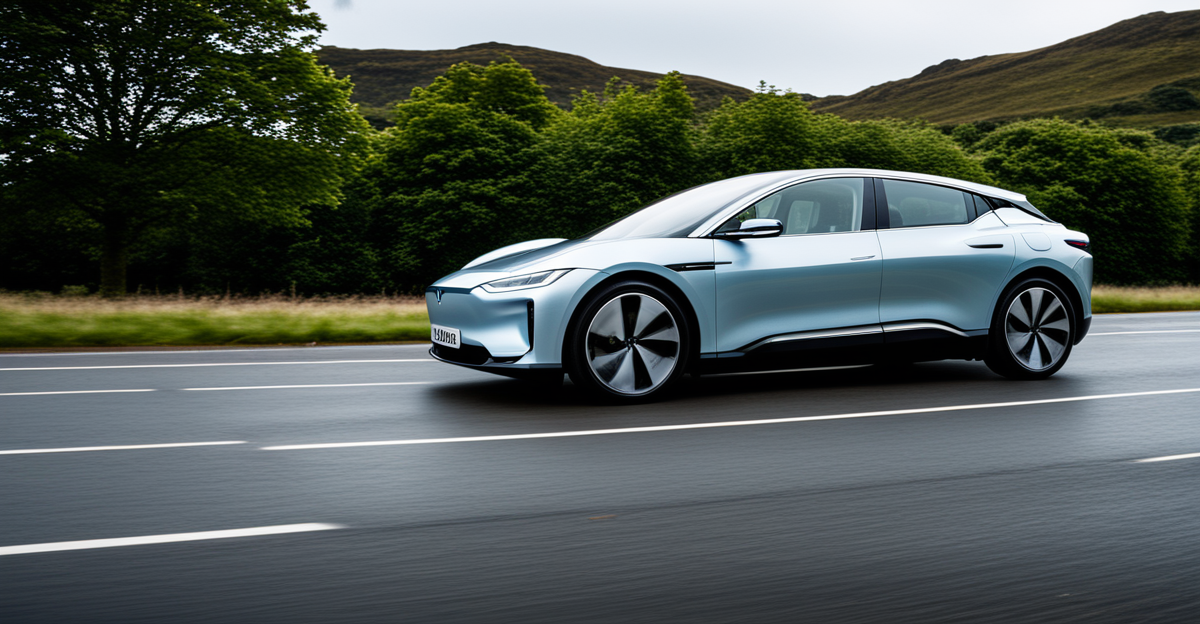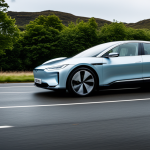Key Trends Shaping the Future of Electric Vehicles in the UK
The electric vehicle trends UK landscape is rapidly evolving due to several influential factors shaping the future of EVs. One major trend is the advancement of emerging EV technologies, such as improved battery capacities and more efficient powertrains. These innovations enhance range and performance, directly impacting consumer appeal and accelerating EV market growth.
Additionally, consumer preferences are shifting noticeably. Buyers increasingly prioritize sustainability and cost-effectiveness, with many seeking models offering longer ranges and faster charging times. This behavioural change supports the expanding electric vehicle trends UK, making EVs more mainstream.
Have you seen this : What Are the Most Common Challenges in the UK Automotive Industry Today?
Market projections indicate sustained EV market growth, driven not just by technology but also by growing environmental awareness and urban air quality concerns. Industry analysts predict a continued rise in EV sales, supported by these shifts and ongoing improvements in vehicle accessibility. Taken together, these combined factors reflect a positive and dynamic trajectory for the future of EVs in the UK.
UK Government Policies and Regulatory Landscape
Government action plays a pivotal role in accelerating electric vehicle trends UK. The UK government has set ambitious national targets aimed at achieving zero emissions, including phasing out the sale of new petrol and diesel cars by 2030. These EV government policy UK measures are designed to catalyse the future of EVs and support sustainable transport goals.
This might interest you : How is the UK automotive industry integrating AI into production?
Financial incentives make EV adoption more attractive. Various electric vehicle incentives, such as purchase grants and reduced road taxes, lower initial costs for consumers, directly boosting demand and fueling ongoing EV market growth. These incentives often target both private buyers and businesses, aiming for broad-based uptake.
Regulatory frameworks also affect manufacturers. Stricter emissions standards push automakers to develop cleaner and more efficient vehicles, prompting innovation and investment in EV technology. Compliance with such automotive regulation is essential for companies operating in the UK market. Collectively, supportive policies and regulations form a robust ecosystem that underpins the expanding electric vehicle trends UK and helps shape the country’s transport future.
Infrastructure Developments and Charging Networks
Expansion of EV charging infrastructure UK is critical to sustain the rapid increase in electric vehicle adoption. Public charging networks are growing to meet rising demands, with installations in urban centres, highways, and key transport corridors to provide reliable access. This charging station expansion reduces range anxiety and supports continuous EV market growth.
Private sector investment complements public efforts. Energy companies, retail chains, and technology firms are investing heavily in fast and ultra-fast charging points, integrating them with smart grids and renewable energy sources. Together, these initiatives enhance usability and convenience, crucial factors influencing the future of EVs.
However, challenges remain in equitably serving both urban and rural drivers. Urban areas face space constraints and congestion, while rural regions often lack sufficient charging density, limiting accessibility. Addressing these gaps requires coordinated policy support and innovative solutions such as mobile chargers and home charging subsidies. Ultimately, a robust and widespread charging infrastructure forms the backbone of sustained electric vehicle trends UK and ongoing EV market growth.
Technological Innovations Transforming the Automotive Industry
Technological advances are pivotal in shaping electric vehicle trends UK and the future of EVs. Notably, breakthroughs in EV battery technology have significantly improved energy density and charging speed. These enhancements extend vehicle range, addressing one of the main barriers to wider adoption. For instance, solid-state batteries are emerging, promising safer, lighter, and longer-lasting power sources, which directly fuel EV market growth.
Parallel to battery improvements, progress in autonomous vehicles is gaining momentum. Self-driving technology integrates sensors, AI, and real-time data processing, aiming to increase road safety and convenience. This shift is expected to transform mobility by offering automated rideshares and reducing human error, thus complementing the expanding EV fleet.
Moreover, smart mobility concepts in the UK are integrating EVs into broader transport networks, enhancing efficiency and sustainability. Connected vehicle systems manage energy use, traffic flow, and parking through smart grids and IoT connectivity. Together, these technological innovations form the backbone of the electric vehicle trends UK, driving adoption, and shaping a more intelligent, sustainable automotive future.
Environmental, Economic, and Industry Impact
The electric vehicle trends UK significantly influence environmental, economic, and industrial sectors. From an environmental perspective, EVs reduce carbon emissions and urban air pollution by replacing petrol and diesel vehicles. This transition lowers harmful particulates and greenhouse gases, contributing directly to cleaner air and meeting climate targets.
Economically, the EV market growth fosters new opportunities across manufacturing and supply chains. The UK automotive sector is evolving, with increased focus on EV production infrastructure and component innovation. This shift creates jobs in battery manufacturing, software development, and vehicle assembly, while also requiring workforce retraining to meet new technical demands.
However, these changes also pose industry challenges. Some traditional roles face threats due to automation and different production techniques needed for EVs. Policymakers and companies are prioritizing strategies for job retention and skills development to ensure the workforce adapts alongside the growth of the future of EVs.
Together, the environmental gains and economic shifts underline the transformative impact of electric vehicle trends UK on society and the automotive industry.
Challenges and Opportunities for Manufacturers and Consumers
The issue of EV affordability remains a significant barrier to widespread consumer adoption in the UK. Despite falling battery costs, purchase prices for electric vehicles often exceed those of traditional cars. This cost difference can deter buyers, especially without sufficient electric vehicle incentives. To overcome this, manufacturers and policymakers focus on reducing production expenses and sustaining financial support aimed at lowering entry costs, directly influencing consumer adoption UK.
From the manufacturing perspective, re-tooling factories and restructuring supply chains pose complex challenges. Moving away from internal combustion engines requires significant investment in new technologies, training, and sourcing of components such as batteries and semiconductors. These shifts may initially slow down production and affect profitability but are essential for the industry’s long-term competitiveness and alignment with regulatory demands.
To boost demand, strategies include improving affordability through scalable production, enhancing charging accessibility, and increasing public awareness of EV benefits. Clear communication about total ownership savings and environmental impact also builds consumer confidence, supporting sustained EV market growth. Together, addressing these challenges and seizing opportunities will be pivotal for the future of EVs in the UK.










